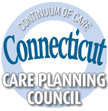April 2012 - How To Select an In-Home Aide
Studies show that older Americans want to remain in their homes for as long as possible. For growing numbers of elders and concerned family members - the solution is a home aide. If your family is considering hiring a fome aid, the first decision is what type of aide you need.
March 2008 - Getting the Government to Pay Family Caregivers
Some 44.4 million adult caregivers -- or 21% of the U.S. adult population -- provide unpaid care to seniors or adults with disabilities, according to a 2004 study by the National Alliance for Caregiving in Bethesda, Md. On average, those caregivers provide 21 hours of care a week and the average length of time spent providing care is 4.3 years... A number of these requests have been from family caregivers who had to cut back on their employment or even quit their jobs in order to take care of one or both of their parents. Invariably these caregivers assume there is a government program that will pay them to provide this care. Only recently have we become aware of some programs that will pay family members. These programs are not publicized and the public is largely unaware of them or how to receive them.
March 2008 - The Best Health Care System in America
It comes as a surprise to some people who had experience with VA health care during the 1970s and 1980s that this same system is now considered the best medical care in the United States. To illustrate this we quote below articles and comments from the several sources.
BusinessWeek, July 17, 2006 "The Best Medical Care in the Nation, How Veterans Affairs transformed itself -- and what it means for the rest of us"
"To much of the public, though, the VA's image is hobbled by its inglorious past. For decades the VA was the health-care system of last resort. … The huge system had deteriorated so badly by the early '90s that Congress considered disbanding it." "Instead, the VA was reinvented in every way possible. In the mid-1990s, Dr. Kenneth W. Kizer, then the VA's Health Under Secretary, installed the most extensive electronic medical-records system in the U.S. Kizer also decentralized decision-making, closed underused hospitals, reallocated resources, and most critically, instituted a culture of accountability and quality measurements. "Our whole motivation was to make the system work for the patient," says Kizer, now director of the National Quality Forum, a nonprofit dedicated to improving health care. "We did a top-to-bottom makeover with that goal always in mind..."
February 2008 - Department of Commerce Offers up to $80 to Help Seniors and Others Convert to HDTV
Imagine watching your favorite primetime TV program, when all of a sudden your analog TV screen goes to black…for good. There is still time to prevent this situation, as long as you know your options. On February 17, 2009, all full-powered television stations will begin broadcasting only in digital, as required by law. To assist U.S. households with this historic transition, the National Telecommunication and Information Administration, part of the U.S. Department of Commerce, created the TV Converter Box Coupon Program to help Americans continue receiving over-the-air television after February 17, 2009.
January 2008 - Long Term Care - An Impending Crisis for the Elderly
If we were to ask an older person what his or her most important concerns or wishes for the future are, we would probably get a variety of different answers. But according to surveys frequently conducted among the elderly, the most likely answers we would receive would include the following three principal concerns or wishes.
- Remaining independent in the home without intervention from others.
- Maintaining good health and receiving adequate health care.
- Having enough money for everyday needs and not outliving assets and income
Although the elderly are definitely concerned about the need for long term care it is not high on the list of concerns. To address these concerns or wishes and maintain the quality of life wanted in the elder years, it simply takes a little pre-planning. Unfortunately, as a rule, that is not happening. For seniors the need for eldercare is probably the most catastrophic unexpected event that could happen to them. This is because the need for care typically removes any level of security an older person may have with the three major lifestyle concerns mentioned above.
December 2007 - Caregiving Stress - Hazardous to Your Health and Sometimes Deadly
A 2003 study of caregivers by a research team at Ohio State University has proven the off-repeated adage "stress can kill you" is true. The focus of the investigation was the effect the stress of caregiving had on caregivers. The team, led by Dr. Janice Kiecolt-Glaser, reports on a 6-year study of elderly people caring for spouses with Alzheimer's Disease. The study not only found a significant deterioration in the health of caregivers when compared to a similar group of non-caregivers but also found the caregivers had a 63% higher death rate than the control group. The demands on a caregiver result in a great deal of stress. It is often observed in aging publications that stress can induce illness and depression. The resulting poor health can further decrease the effectiveness of the caregiver and in some cases, as proven by the study mentioned above, even cause premature death.
September 2007 - About the National Care Planning Council
How the Council Came to Be
The National Care Planning Council is a result of my passion about helping people plan for long term care. My wife, Susan, and I experienced the challenge of long term care with all four of our parents. I helped my mother for many years with my father’s Parkinson's Disease until she succumbed to physical and mental exhaustion at which point we had to place my dad in a nursing home. She destroyed her health by taking care of my father and we ended up caring for her in our home for three years until her death. Shortly after my mother's death, Susan's father -- who was caring for his wife at home -- had a stroke. We could not handle both of them in our home so he went to a nursing home and we took care of her mother for another two years until she died. We didn't have much of a life for five years. As a result of this experience, I started selling long term care insurance about 12 years ago. Even though insurance is a good solution for some people, it does not work for everyone and insurance is only a means of funding and does not necessarily solve the day-to-day problems with long term care. Recognizing the need for long term care planning beyond insurance, I started teaching care planning workshops at a local community college and at various high schools throughout the community. I organized a local group of care planning specialists -- an elder law attorney, a care manager, a home care provider, a reverse mortgage specialist and me -- and we called ourselves the Utah Eldercare Planning Council. Everyone in the group participated in the planning workshops and we helped solve problems with family members who were dealing with long term care for their loved ones.
September 2007 - Life Insurance and Annuities for Long Term Care Planning
Life insurance and annuities are useful products that help solve problems with the estates of elderly long term care recipients. We discuss below a number of situations where these insurance products are used to rescue assets from long term care costs, reduce or eliminate taxes, protect the lifestyle of the healthy spouse and increase inheritances for the family.
Elder Care Lawyers - West Hartford CT, Simsbury CT, Avon CT





